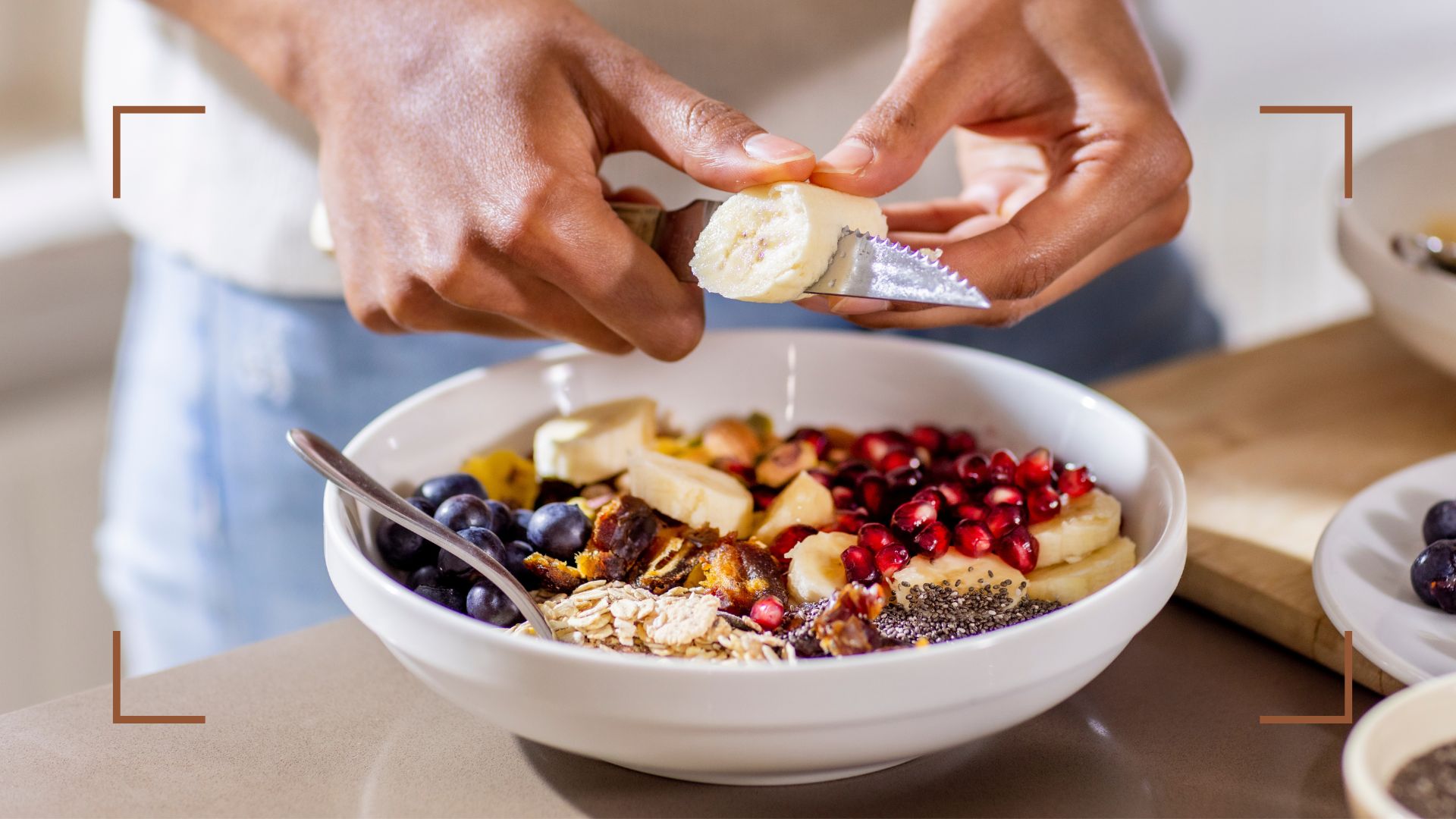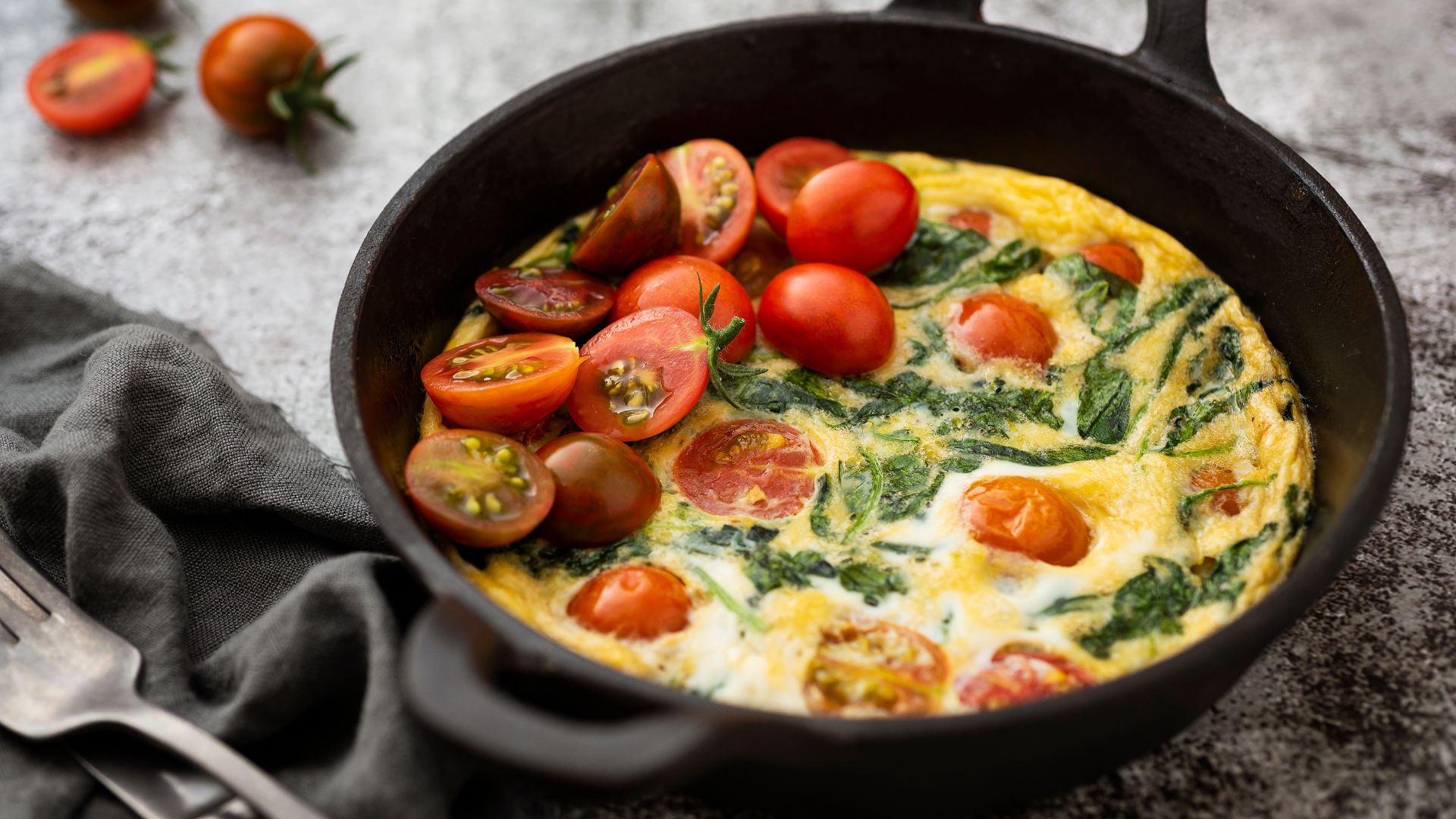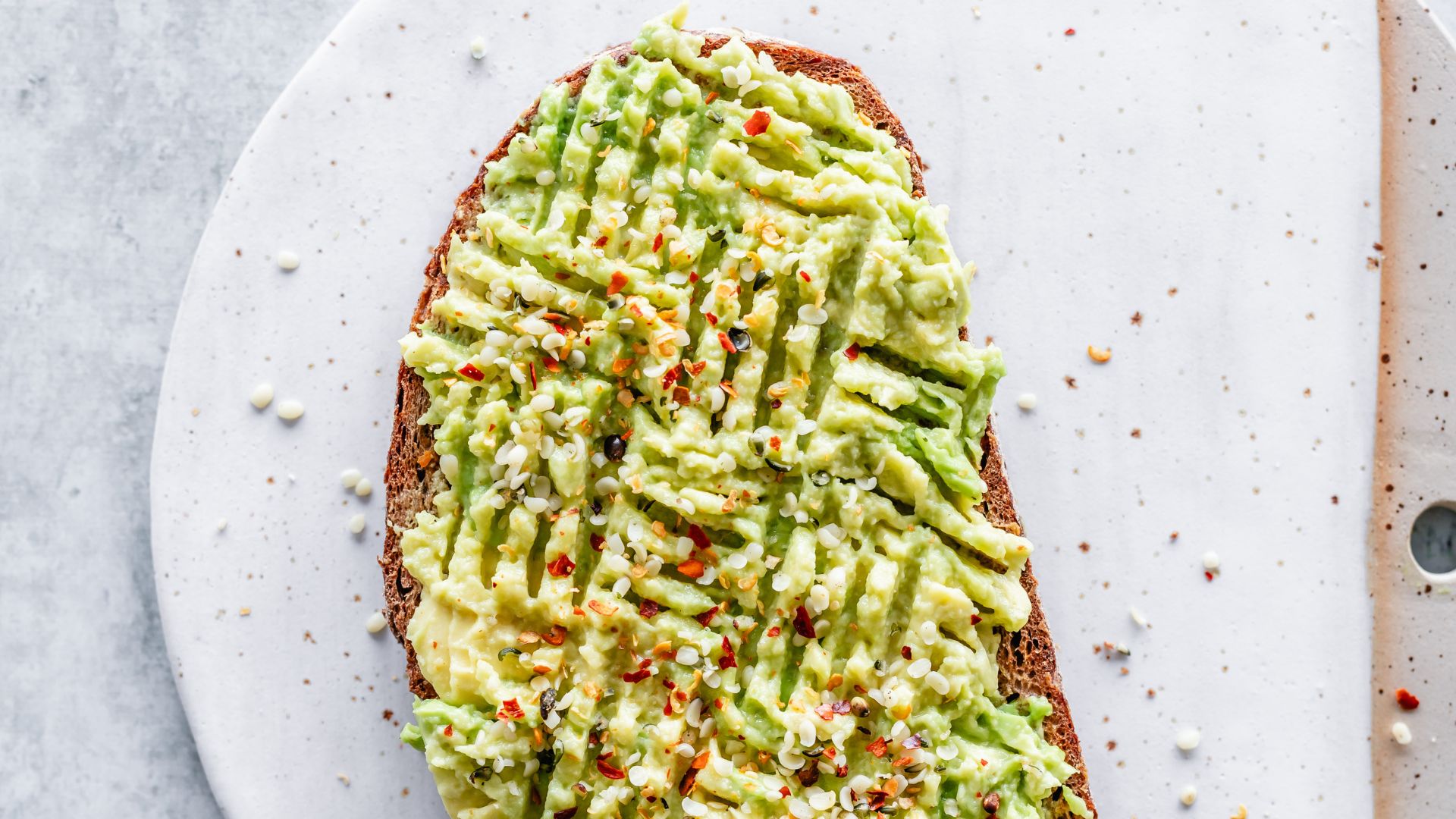How many calories should I eat for breakfast? Nutritionists reveal the top mistakes you could be making with your first meal
Many people wonder how many calories they should eat for breakfast. Here, two nutritionists reveal the truth


How many calories should I eat for breakfast? If you’re looking to lose weight or you’re struggling to stay full through the morning, changing how much you eat and the foods you choose at breakfast time can have a huge impact on the rest of your day.
Knowing what to eat, when, and how much to eat, are three issues most people have when considering their breakfast habits generally too. We hear about the benefits of porridge over toast, fruit over cereal, and the phrase ‘high protein breakfast’ is thrown around more often than not in the discussion too, but what matters when it comes to keeping a healthy diet?
Here, woman&home speaks to nutritionists to determine how many calories you should really eat for breakfast every day if you're looking to avoid the classic weight loss mistakes or you want to learn how to have better portion control and keep full. Plus, they reveal foods they recommend for the morning.
How many calories should I eat for breakfast?
How we plan and divide up our meals for the day is highly individual, the experts agree. However, if you're looking for a general guide based on the NHS and USDA's daily 2000-calorie recommendation for women, then 300 to 400 calories for breakfast is a good number to start with.
If you eat 400 calories for breakfast, following these guidelines, you might have 600 calories for lunch, and 600 for dinner, with an additional 400 calories left over for any snacks or additional foods, like milk in coffee. However, there is also research from the University of Aberdeen that suggests having a larger breakfast and a smaller dinner could make some people feel less hungry during the day due to the impact the eating schedule has on the metabolism. This could mean you have 600 calories for breakfast and 400 calories for dinner under the same guidelines, for example.
If you're trying to stay in a calorie deficit to lose weight then your breakfast must be a sensible portion of your intake for the day, which you can work out using a calorie calculator online. "How many calories you need to eat depends on various factors such as lifestyle, exercise habits, daily routines, and individual preferences," nutritionist Signe Svanfeldt explains.
Either way, it's so important to recognize that nutrition - especially when it comes to calories - is totally down to your particular needs. These are likely to be completely different from someone else's, so whatever the reason for looking at your breakfast calories, try out a couple of different eating patterns throughout the week and see what works best for you. "There is no one size that fits all when it comes to breakfast habits," the nutritionist confirms.
Sign up to our free daily email for the latest royal and entertainment news, interesting opinion, expert advice on styling and beauty trends, and no-nonsense guides to the health and wellness questions you want answered.

Do I have to eat breakfast at all?
If you don't want to eat breakfast because it makes you feel nauseous, or you don't have time and don't feel the need to have your first meal so early in the day, then it's actually perfectly fine to skip breakfast, explains Svanfeldt. "Some prefer to eat a larger breakfast, while others like to skip breakfast and have lunch as their first meal. There is no golden rule, as long as you get the right amount of energy and nutrients for your individual needs, you can place them whenever it fits your needs during the day."
For example, some people find that intermittent fasting helps them keep control of their appetite. This could mean eating dinner at 8 pm and then not eating again in the morning until noon, as per the 16:8 diet plan. If you're going to do this though then it's important to avoid the common intermittent fasting mistakes people tend to make around breakfast time, like not drinking enough water.
Do you have to count calories to lose weight?
No, counting calories and tracking them to ensure you're in the deficit isn't the only way to lose weight, and it won't be suitable for everyone. For example, counting and tracking calories won't be suitable for those with a prior history of disordered eating and it will be more difficult for those who tend to have most of their meals away from home. Instead, you could choose to decrease the number of calorie-heavy foods in your diet by trying something like the keto diet plan and opting for more high-protein foods than carbohydrates.
There are other factors at play when it comes to breakfast and losing weight that have nothing to do with calories as well - namely, your blood sugar levels. "Breakfast is the most important meal of the day to get right for optimizing health and weight," explains Natasha Evans, a nutritionist who specializes in personalized eating plans. "If our blood sugar is on a constant rollercoaster due to a high-sugar and refined carbohydrate diet, we are likely to deposit fat and gain weight. When we're in a blood sugar dip after a high-carb or sugary meal, we can also feel tired, irritable, and hungry."
When this happens, she explains, we're most likely to have sugar cravings because they provide a quick boost of energy. "Then the cycle continues and you end up on a blood sugar rollercoaster," she says. "Research from the University of Kumamoto also shows that what you eat for your first meal of the day influences your blood sugar responses for the rest of the day, so it really is the most important meal to get right as it will improve satiety and reduce cravings throughout the day."

What should I have for breakfast if I want to lose weight?
A balanced meal rich in fiber, protein, and healthy fats is the consensus from the duo of nutritionists. "These are the best high-protein low-calorie foods to make you feel fuller for longer and they will give you the right conditions to fuel your body, says Svanfeldt, who is also the head nutritionist at Lifesum, a leading healthy eating app with plenty of nutritious breakfast recipes if you're looking for inspiration.
- Eggs: "Boiled, poached, scrambled, or as an omelet or frittata with extra vegetables thrown in," suggests nutritionist Evans. "This way, you get healthy protein and fats."
- Oats: Porridge or overnight oats with nuts, seeds, chia seeds, ground flaxseeds, live yogurt, nuts, seeds, chia seeds, ground flaxseeds, live yogurt, a good quality protein powder, or collagen powder will be best, she says. "Try and reduce the sugars added, which includes honey and maple syrup, as much as possible, and add in extra fats and protein to help keep blood sugar more balanced."
- Avocado on toast: "It's not about avoiding carbs entirely, but it's about thinking what extra protein or healthy fats can you pair with your carbs to set your blood sugar responses up for the day," Evans says. "Avocado on toast is a great example, for instance. The healthy fats from the avocado reduce the blood sugar impact of the carbohydrates from the toast."

Grace Walsh is woman&home's Health Channel Editor, working across the areas of fitness, nutrition, sleep, mental health, relationships, and sex. She is also a qualified fitness instructor. In 2025, she will be taking on her third marathon in Brighton, completing her first ultra marathon, and qualifying as a certified personal trainer and nutrition coach.
A digital journalist with over seven years experience as a writer and editor for UK publications, Grace has covered (almost) everything in the world of health and wellbeing with bylines in Cosmopolitan, Red, The i Paper, GoodtoKnow, and more.